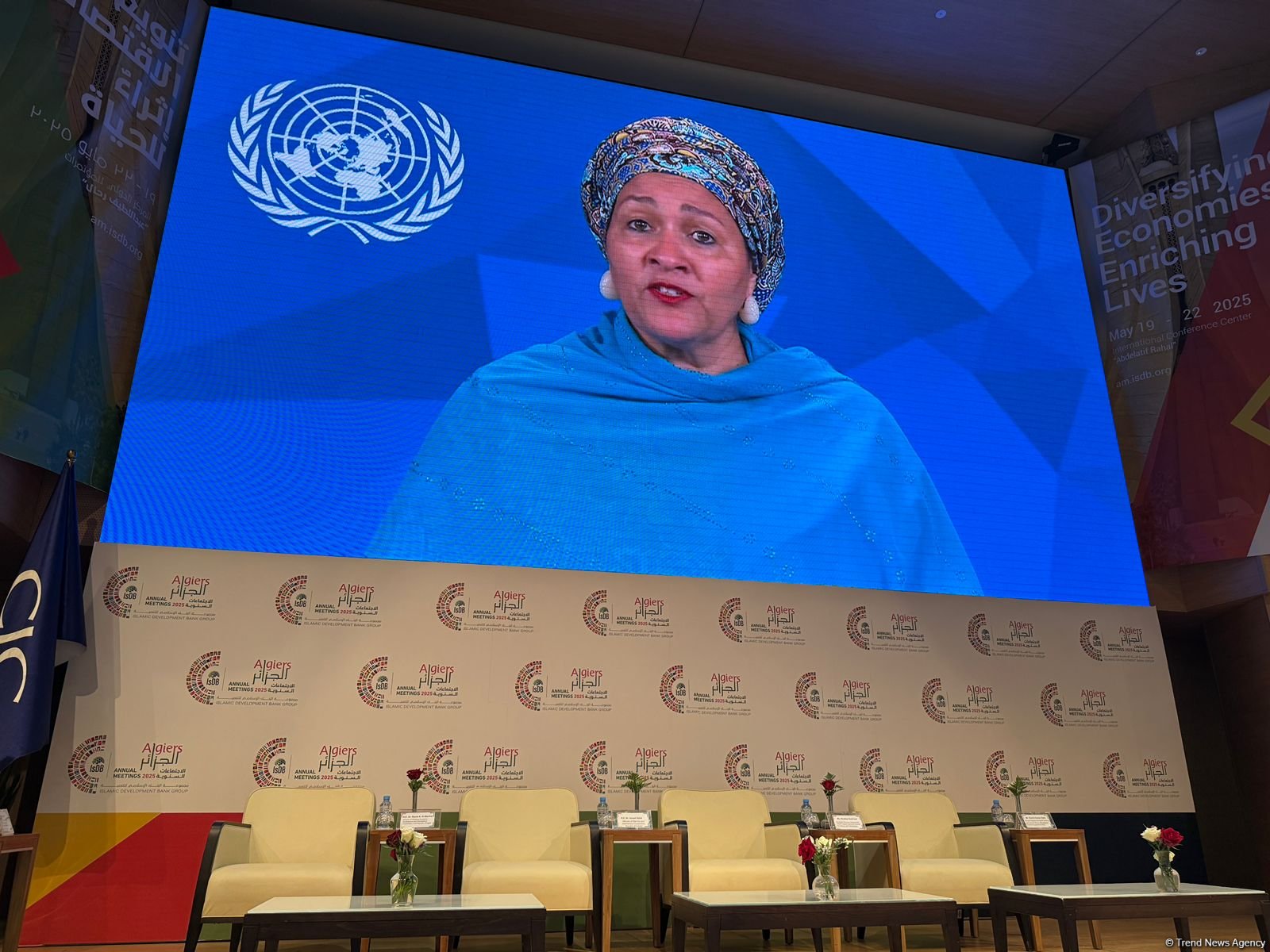ALGIERS, Algeria, May 21. Middle-income countries are at a critical crossroad. They generate nearly 40 percent of global GDP, yet they are global home to over 60 percent of the world's poor, said Amina J. Mohammed, United Nations (UN) Deputy Secretary-General, Trend’s special correspondent reports.
In a video message to participants of a panel discussion titled "Avoiding the Middle-Income Trap: Accelerating SDGs Achievement in Middle-Income Countries", held as part of the IsDB’s Annual Meetings in Algiers, Mohammed noted that the population size, economic influence, and environmental footprint of such countries make them key partners in achieving the Sustainable Development Goals (SDGs). However, many of them face serious obstacles to realizing their full potential.
"Huge debt service burdens, high capital costs, and limited fiscal space hinder investments in innovation, inclusive growth, and sustainable development,” emphasized the UN Deputy Secretary-General.
She also pointed out that middle-income countries are often excluded from concessional financing programs and debt support, despite their limited ability to mobilize domestic resources and the high cost of borrowing in international markets.
“To overcome the middle-income trap, we must address their financing challenges. We need a financial system that is more effective, inclusive, and responsive. A system that focuses resources on concrete outcomes, with developing countries at the centre of decision-making," the official said.
Mohammed added that trade and technology must play a crucial role as key drivers in helping these countries move up the value chain, improve productivity, and create better jobs.
"But these opportunities are under threat. Ongoing global trade tensions, the return of protectionist policies, and the imposition of new tariffs are disrupting supply chains and raising costs for exporters in middle-income countries. If left unaddressed, these trends could erode years of progress, shrink markets, and undermine competitiveness,” warned the UN Deputy Secretary-General.
Stay up-to-date with more news on Trend News Agency's WhatsApp channel







